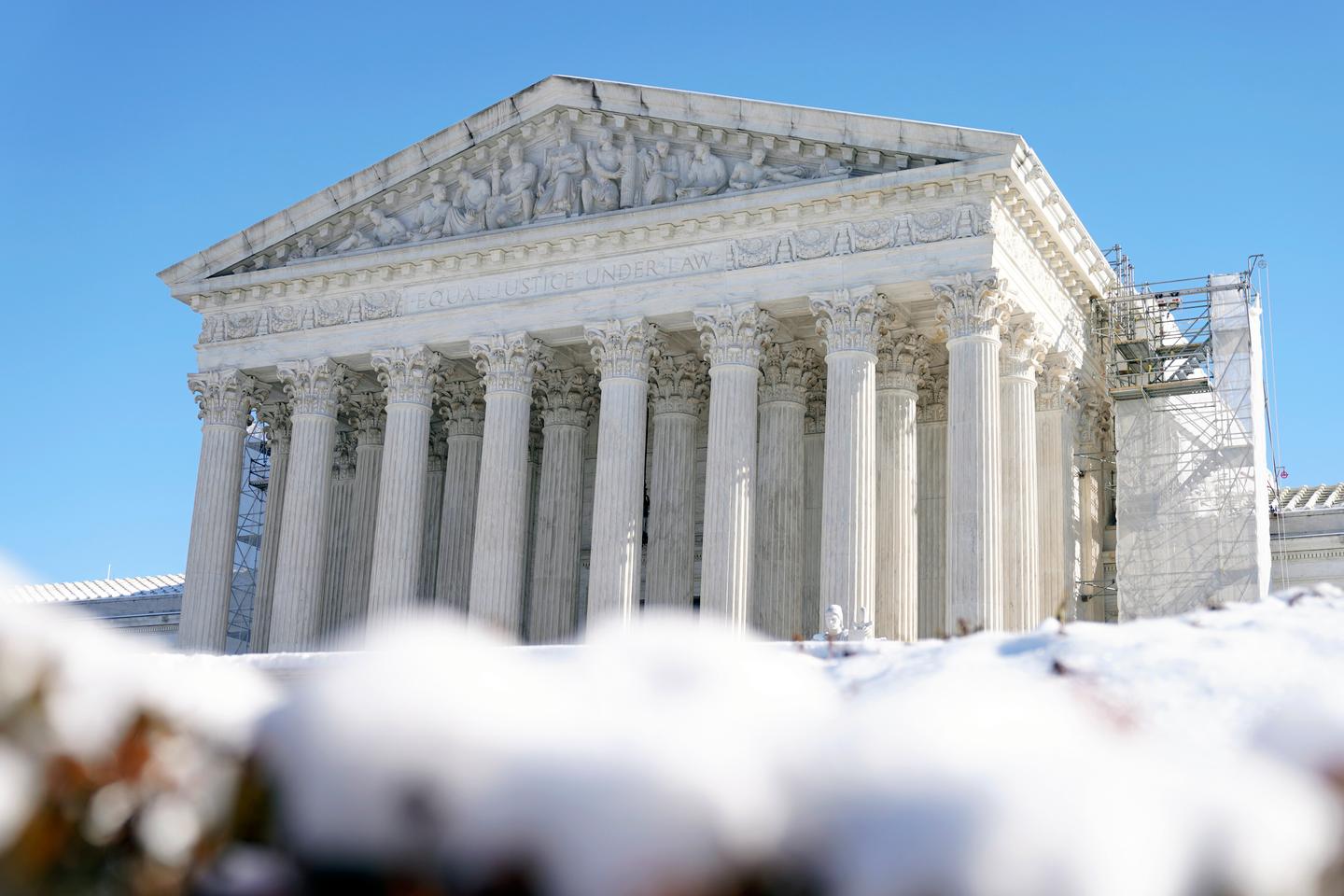


Four women and five men in black robes are about to enter the race for the US presidency. On a bitterly cold Monday in the Midwest, Donald Trump confirmed his place as the favorite of the Republican family. If he intends to be the Grand Old Party's standard-bearer in the November election, between him and his voters, he'll find judges – and particularly the nine justices of the Supreme Court.
Two timetables will merge: That of Trump's legal proceedings, and that of a classic American political campaign – first the primaries and then, come summer, the confrontation between one Democrat and one Republican. This time, however, the course is different, even unprecedented. The Republican candidate is moving forward with a heavy, uncertain step, weighed down by at least three criminal charges: Two for attempting to subvert the November 2020 presidential election, and one for possessing classified documents.
A man under three or four indictments is vying for the presidency of the world's most powerful liberal democracy. A litigant potentially facing a prison sentence is seeking the votes of the American people. A declared crook intends to preside once again over the destiny of the country that assures the leadership of the West.
Some of the trials will begin as early as March, and then, from one courtroom to the next, the waltz of judicial confrontations will punctuate the stages of the electoral competition. It's guaranteed to be a springtime soap opera.
Autocratic tendencies
No one can imagine the impact a conviction could have on the course of the campaign or on the vote on November 5, the date of the presidential election. One thing is certain: Familiar with trials, Trump will exhaust the appeal proceedings. In one way or another, with no way to predict the consequences yet, judges will play a role in this election – whether they convict the former president or not. The judiciary will be brought to bear on politics, which raises a fundamental question. In a democracy, is it up to the judges or the voters to decide Trump's fate and therefore, in part, the election? In this political-legal psychodrama, should the rule of law or popular suffrage prevail? The United States is the scene of a battle of principles on a key point of democratic functioning.
Declared defeated in November 2020 by all the institutions involved in determining it, Trump, his ego raw and refusing defeat, sought to obstruct that high point of democracy that is the peaceful transfer of power from one party to another. He has imposed the theory of a stolen election on the Republican Party, which has submitted pitifully. On January 6, 2021, he called on his supporters to "march" on Congress to prevent – in vain – the certification of the November 2020 vote. The premises were ransacked, six people were killed – and, to date, 1,200 people have been arrested, some sentenced to prison.
You have 50% of this article left to read. The rest is for subscribers only.
